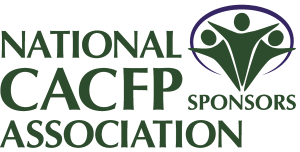Posts Tagged ‘paid webinar’
Fueling Healthy Growth in Early Head Start ($)
Early Head Start sites must often manage two different meal patterns when complying with CACFP requirements based on the age of the children in their care. Learn the differences between feeding infants and toddlers to ensure optimal nutrition and program compliance. Gain valuable insights on how to create balanced and age-appropriate menus, address specific dietary considerations for infants, and implement practical strategies for promoting healthy eating habits to foster a positive mealtime environment.
Read MoreCivil Rights Complaint Procedures ($)
It’s a requirement for operators of CACFP to ensure non-discrimination in the administration of the program and knowing how to establish a written procedure for handling civil rights complaints related to discrimination is important. Gain a comprehensive understanding of the Civil Rights Complaint Procedures and learn how to develop a Self-Assessment Checklist, essential components for compliance. Enhance your knowledge, strengthen your agency’s commitment to civil rights in the CACFP, and be inspired by a real-life example showcasing the successful execution of these procedures.
Read MoreMeal Patterns 101 ($)
Head Start centers play a critical role in serving nutritious foods to those they serve. The CACFP guides you on how to provide healthy meals using five food components which make up the meal service requirements: grains, fruits, vegetables, meats/meat alternates and milk. Learn when these components are required and how they fit into the CACFP meal pattern.
Read MoreMastering Head Start Menus in the CACFP ($)
Navigating the complexities of developing a CACFP Head Start menu can often be overwhelming and confusing. What crucial information should
you include on the menu to be in compliance? Do you include ounce equivalency, serving size, or both!? Moreover, are there specific documents you should maintain while planning your menu? Learn how to create menus stress-free while meeting CACFP requirements in Head Start as we guide you through the process. Get confidence and clarity in your menu development endeavors.
Fueling Minds and Bodies in Head Start with Family-Style Dining ($)
Unlock a world of learning opportunities during meal times in Head Start sites through Family Style dining. Equip your staff or team with a deep understanding of the performance regulations surrounding this meal service model, empowering them to create enriching experiences. Discover how to seamlessly incorporate Math, Science, Language, and Literacy into meal times, transforming them into valuable educational moments. Get practical guidance on aligning meal service with academic goals while ensuring compliance with CACFP and Head Start regulations.
Read MoreCACFP Regulations for Head Start ($)
Operating CACFP in Head Start is a requirement, but do you know the differences between what’s a CACFP regulation and what is mandated by Head Start? Learn what the Head Start performance standards that govern child nutrition are and how they align with the CACFP to provide good nutrition to children. Gain an understanding of the requirements and hear about the latest updates in Head Start performance standards for child nutrition.
Read MoreCelebrate Hispanic Heritage Month in the CACFP ($)
National Hispanic Heritage Month, recognized September 15th – October 15th, is a wonderful time to learn more about the rich history and diversity of the Hispanic and Latino communities. Come celebrate with us as we explore various cultural foods and introduce fun activities that you can bring back to those in your care.
Read MoreCACFP Head Start Boot Camp is Here!
Looking for food program training? Delve into a comprehensive range of vital topics tailored to the unique needs of Head Start programs.
Read MoreAdvancing Indigenous Health Equity and Food Security
Policy is a major determinant of health among American Indians and Alaska Natives. Explore the complex factors that have contributed to high rates of obesity and diabetes among Indigenous Peoples in the United States, including, but not limited to, the disruption of Indigenous knowledge systems, commodity food offerings, displacement, and federal funding shortfalls. Identify best practices for engaging with American Indian and Alaska Native Tribes and Villages and learn how state and federal food commodity programs can advance food sovereignty efforts.
Read MoreUpcoming Virtual Events
Check out these virtual events coming up at NCA!
Read More



